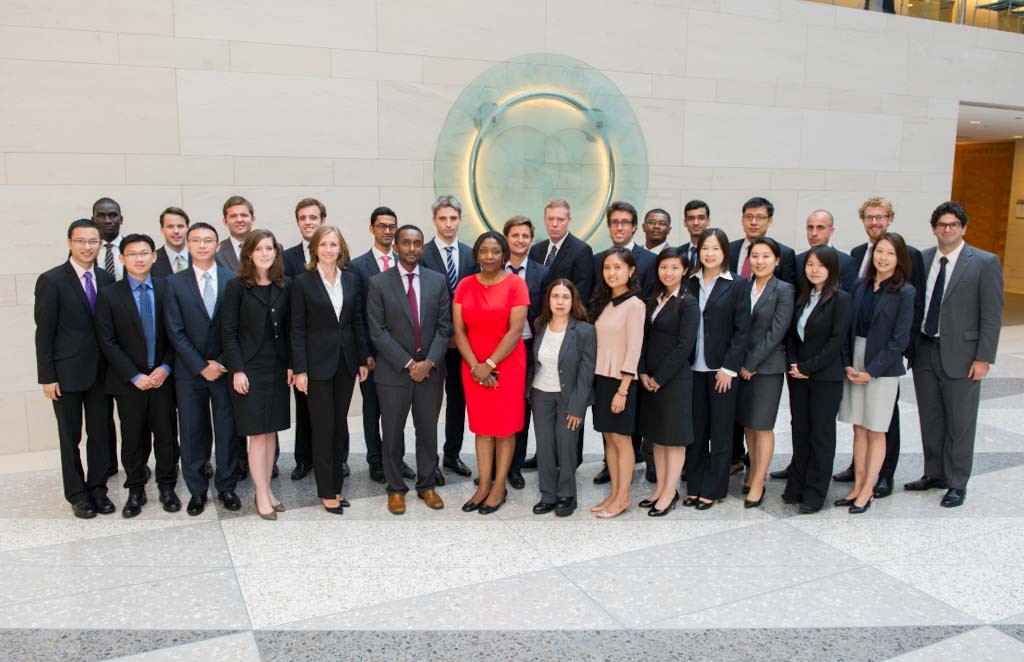| BANYAN BLOG |
banyan blog
|
It has been over a year since I first launched the popular Young Leader Series. Many people continue to be inspired by the younger generation's drive, vision, and determination to help create a better, equitable, and prosperous Cambodia. The road is difficult and long with many bumps, twists and turns, but this generation is tenaciously paving the way for a brighter future for our country. In the lead up to the next group of 2015 Young Leaders, I decided to catch up with last year's group to see what they were up to last year, what goals they have this year, and whom they see are the changemakers in the country. One has moved overseas to work at prestigious international organizations, another expanded their entrepreneurial empire, and one even starred in a film that was screened at the Cannes Film Festival! There is no doubt that they have done some amazing things this year and will continue to reshape, and in their own way, redefine Cambodia. The first person I caught up with is Dyna Heng, who writes from chilly Washington D.C.  Group photo of the new inductees of the 2014 IMF Economist Program (EP). Dyna (second from left, front row) was one of the 28 economists (out of the thousands of applicants from around the world) selected in this highly competitive program. This is the first year a Cambodian national was chosen. Photo credit © IMF 2014. CATCHING UP WITH DYNA HENGDyna Heng has had an exciting year. The young economist was recently accepted into the International Monetary Fund's (IMF) highly competitive Economist Program (EP), the first for a Cambodian national. Now working at the IMF Headquarters in Washington D.C., in the Western Hemisphere Region, Dyna is learning about global best practices in economic and fiscal management. He hopes to apply this knowledge and experience to help with his country’s development in the future. Writing from chilly Washington D.C., Dyna shares with me some of the exciting changes in his life in 2014, his goals in the new year, his positive outlook for Cambodia in 2015, and whom he sees as the change makers of the country. Q: What were your biggest challenges and achievements in 2014?
Dyna: 2014 was one of the best years for me. I joined the World Bank as financial sector specialist in Cambodia at the very beginning of the year and later was offered a place in the Economist Program (EP) of the IMF at the end of the year. I am fortunate to be one of the 28 economists, selected from around 1500 PhD macroeconomists under 32 years old from around the world. Another 2014 achievement is that that my colleagues at Cambodian Economic Association (CEA) and Cambodian Professional Network (CAMPRO) and I were able to organize several discussion rounds with senior people such as H.E Ek Sonn Chan, Former Director General of Phnom Penh Water Supply Authority (PPWSA), H.E Dr. Hang Chuon Naron, Minister of Education, and Dr. In Channy, President & Group Managing Director of ACLEDA Bank, to discuss aspects of institutional building in Cambodia. These are the people who have first-hand knowledge and experience in institutional building in Cambodia. Learning from them the challenges and the practices they went through, or are going through, has been very useful in understanding more about what can and cannot work in Cambodia. Success is often just another step to a different level of challenges. While in Cambodia, I was so passionate about my work, especially on financial sector and macroeconomic issues, and engagement in CEA activities. On many occasions, given the traffic conditions and full-time workload for most members, we organized discussion gatherings, research seminars, and reading group activities on the weekends. That was often at the costs of family time. In 2015, I hope to manage a better balance. Everyone can be a parent, but it needs effort and commitment to be a special parent. And I want to be a special father too. Q: What are your plans for 2015? Dyna: At the IMF, I am assigned to work in the Western Hemisphere Department (Latin America). As a young professional, apart from participating in a range of training and development activities, I am expected to acquire exposure to a range of regional and country-specific issues, especially those related to fiscal conditions, monetary policies, banking and financial stability, and balance of payment. There are many key issues and lessons in the region that Cambodia can learn from, for example; how countries de-dollarize, deal with capital inflows, manage the impacts of commodity price boom-bust, and promote economic diversification. I will be also travelling to assigned countries, interact with country authorities and carry out operational work related to the IMF's mandate. With such scheduled plans, I have two goals: to develop analytical capacity to a much higher level and build expertise, and to improve my Spanish language, which is widely used in the region. For extra activities, taking advantage of being in the US, I want to connect to capable and experienced Cambodians as well as Cambodian students in the US. Exploring what they have been doing, and what they can do and contribute back to Cambodia as a team or as an individual, is always interesting and rewarding. Q: What is your view on Cambodia’s economy in 2015 and beyond? Dyna: Seeing Cambodia from outside and sometimes from the countries I am working on, Cambodia shines on many angles. And this country should continue to emerge much further if we keep improving the quality of our political and economic institutions. Much has been improved, yet much more remains to be done. Cambodia is entering a critical juncture over the next 3-5 years. 2015 should be a stable year for us to think and act more for medium-term development of the country. Domestic stability, increasing regional integration, and still vibrant Asian economies should create a favorable environment for Cambodia’s growth. We need to take to take advantage of the positive growth and regional economic tailwinds to push through the key reform efforts on budget, education, health, public incentives, governance, and institutional building. As the experience of other developing and emerging market economies have shown, a favorable growth environment often makes reform efforts easier to implement. Our emphasis and momentum on improving the country’s fiscal revenues and delivery of public services, especially in education and health, is both timely and necessary to make growth more inclusive and sustainable in the coming years. Continued efforts to increase domestic revenue and improve spending efficiency would help finance our vast development needs in soft and hard infrastructure. It will also help us build a buffer to address any external shocks, given our open and highly dollarized economy. Q: In your opinion, who are the people we should pay attention to i.e., the changemakers in Cambodia, in 2015 and why? Dyna: Mr. and Mrs. 30s. They are the professionals who are beginning to stimulate the new dynamics of private sector development and public sector. Mr. and Mrs. 30s have benefited from a more favorable growing environment and have more opportunities than earlier generations. They can be the changemaker in their respective industries in the coming years, either in finance, law, business, or some public institutions. Indeed, some of them are already transforming the landscape of development and engagement. These people are now emerging and serving as role models, for which the Cambodian younger generation has been hungry for. To me, they represent real hope for the future of our country. Mr. and Mrs. 30s are often the most educated in their families, being bread-winners, thriving in their workplace, setting examples for the next generation, overcoming legacies created by the past generations’ mistakes, trying to bring Cambodia to the next level, as well as bring it to a place it might have never been before: wining international competition, going to the world’s best universities, and working in respected international institutions. As Cambodia moves forward to win its future, the batons of leadership and management are also being passed to Mr. and Mrs. 30s. Essential for Cambodia are then how they collaborate with one another, how they set up the platform and incentive mechanism that allows people to work together constructively to unleash Cambodia’s potential, and how they bring together capable professionals across generations to exchange views and have more engagement. I believe that the effective collaboration of Mr. and Mrs. 30s can help address the generation gap (with Mr. 50s and 60s), and facilitates the institutional and aspirational transition that is taking place now in Cambodia now. Want to learn more about Dyna? Read his first interview.
1 Comment
|
FEATURED INMOST POPULARThe Journey Archives
October 2022
follow |
© banyan blog 2013-2022
All Rights Reserved
All Rights Reserved


